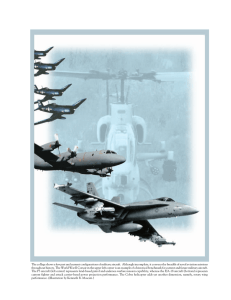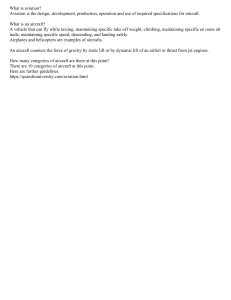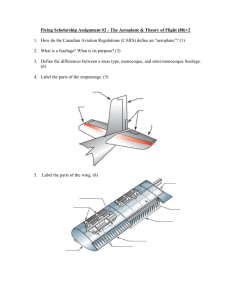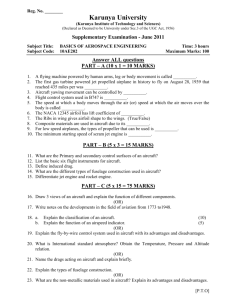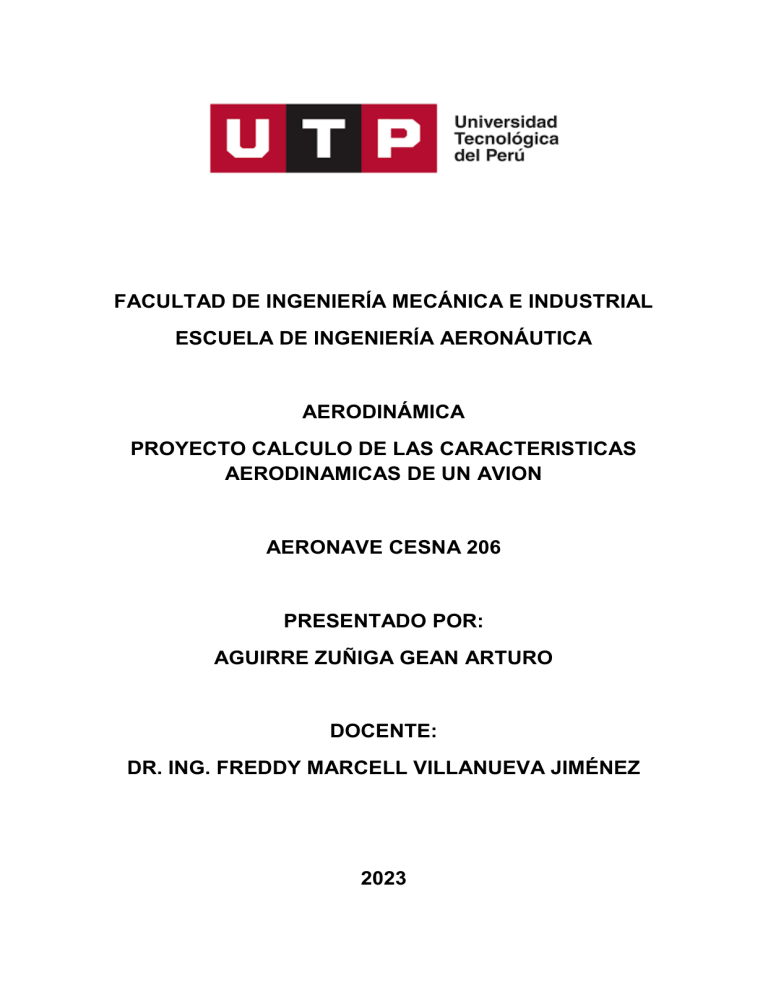
FACULTAD DE INGENIERÍA MECÁNICA E INDUSTRIAL ESCUELA DE INGENIERÍA AERONÁUTICA AERODINÁMICA PROYECTO CALCULO DE LAS CARACTERISTICAS AERODINAMICAS DE UN AVION AERONAVE CESNA 206 PRESENTADO POR: AGUIRRE ZUÑIGA GEAN ARTURO DOCENTE: DR. ING. FREDDY MARCELL VILLANUEVA JIMÉNEZ 2023 CHAPTER 1 1.1 General Objective Perform the calculation of the aerodynamic characteristics of an aircraft and the forces acting for each mach regime. 1.2 Specific objectives • Calculate the critical mach of CESNA 206 • Calculate the different coefficients of the CESNA 206 aircraft • Analysis using CAD design software of the aircraft • Calculate the design parameters of the aircraft 1.3 AIRCRAFT DESIGN BACKGROUND The CESNA 206 training aircraft is a single-engine, high-wing aircraft with a capacity of 4 people. It is the most manufactured aircraft in history and the most popular training aircraft for pilots. Figure 1: CESNA 206 1.4 DEFINITION OF THE MISSION AND TYPE OF AIRCRAFT 1) SPECIFIC MISSION: Training aircraft 2) RANGE, AUTONOMY, RADIUS OF ACTION: The CESNA 206 is a medium and long-range single-engine aircraft depending on its variants, with a flight autonomy of approximately 6 hours that can transport up to 450 kg with its maximum fuel capacity, which allows a flight of up to 1,600 km. 3) USEFUL LOAD, NUMBER OF PASSENGERS, SPECIAL CARGO: 450 Kg., approximately 4 passengers. CHAPTER 2: INITIAL DATA 2.1 Definition of geometry The modeling of an aircraft already existing in the commercial market was designed taking as references other models that preceded the chosen model, the geometry of the commercial aircraft will be designed with the inventor software. 2.1.1 Fuselage and engine nacelle: For the correct elaboration of the fuselage, the inventor software was used, likewise for the elaboration of the engine nacelle. Figure 1: CESNA fuselage Fuselage: • Fuselage length • Fuselage midsection area: • fuselage diameter: • Fuselage lengthening: • Fuselage nose length: • Lengthening of the nose of the fuselage: • Fuselage tail length: • Lengthening of the fuselage tail: Engine: • Mach 0.82 speed • Autonomy of 1600 km • Thrust of 31,414 kgf • Length of 8.6 meters • Diameter of 2 meters • Weight of 1640 kg • Low pressure single stage compressor • Turbine with one high pressure stage, one intermediate pressure stage and six low pressure stages 2.2 SELECTION OF WING PROFILE AND STABILIZERS For this procedure we will select the wing profile and stabilizers depending on the type of aircraft developed. Wing profile: NACA 4412 Figure 2: NACA 4412 profile image

